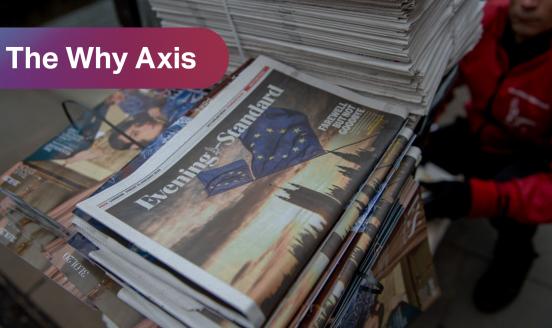Bruegel’s multiple births
Nicolas Véron takes us back to the very early days of Bruegel in 2005.
Almost exactly ten years ago, on 9 September 2005, Bruegel issued its first publication: André Sapir’s study on “Globalisation and the Reform of European Social Models”. This paper had been prepared at the suggestion of Bruegel’s Board during the summer, and was discussed at the informal ECOFIN council meeting in Manchester (under the UK presidency) the same day. It quickly became a much-cited reference in the European economic debate and played a powerful role in establishing Bruegel’s policy influence from the outset.
At that time, Bruegel had a fledgling team of eleven, of which eight had just joined in the previous few months. The initial core of the research team, namely Alan Ahearne, now a senior Irish financial and monetary policymaker, Juan Delgado, who later became Chief Economist of the Spanish Competition Authority, Jakob von Weizsäcker, now a Member of the European Parliament, and André Sapir; two talented research assistants, Narcissa Balta, now at the European Commission, and Fulvio Mulatero, also contributed. They were joined by Claire Delpeuch, a highly effective trainee who now works at the OECD and Sona Patel Amin, then administrative assistant and now Bruegel’s operations manager. The “old-timers”, so to say, were Yvonne Hilario, office coordinator; Jean Pisani-Ferry, who had been appointed Bruegel’s first Director back in January; and myself.
That year 2005 was effectively when Bruegel started. There were many milestones, all of them important. On 17 January, the Board had its first meeting, at Brussels’s timeworn University Foundation near the Royal Palace. Under Chairman Mario Monti’s leadership, it adopted the name Bruegel – which Monti had himself suggested, playing on the idea of a “Brussels European and Global Economic Laboratory” – and marked the start of Bruegel actual operations. The day after, Monti and Pisani-Ferry held a press briefing in which the newborn was announced to the world, and received promising initial coverage.
Die Zeit emphasized the project’s Gemütlichkeit, calling it “Bruegels Denkstube”; Libération noted approvingly that it might help Europe find a voice to match “les influents think tanks américains”; the Italian press understandably focused on what the Bruegel chairmanship suggested about Monti’s future moves; and the Financial Times wrote “Monti recalled that Bruegel (the Elder, of course) was also known for his depiction of the Tower of Babel, which the think-tank would not resemble in the slightest.” A few days later, columnist Brian Groom noted in the same newspaper that “Initial fears at the European Commission that [Bruegel] would be another French-German manoeuvre to seize back the political initiative have turned out to be wide of the mark.”
In April, graphic designer Jean-Yves Verdu created Bruegel’s logo. At the same time, Bruegel moved to the offices it still occupies on the third floor of rue de la Charité 33/ Liefdadigheidstraat 33 in Brussels. It held its first workshop there, on 13 May, on “Europe’s productivity drift and how to reverse it”. On 27-28 June it held its first high-level conference on the challenge to multilateralism from regional trade agreements, a theme that also resonates these days, in the historic Erasmus House in Anderlecht. After the September publication of the “Sapir Paper”, a Policy Brief version was published on 24 October, in the now-familiar eight-page format designed by Verdu which effectively initiated Bruegel’s publication series.
Even though the events of 2005 felt like a series of beginnings, they were also the culmination of a process of gestation that had started three years earlier. Both Jean Pisani-Ferry and I had been thinking about the possibility of a new European think tank, first on separate tracks and then jointly after a lunchtime conversation in Paris on 18 October 2002. The project was launched on 22 January 2003, by Jacques Chirac and Gerhard Schröder as part of the joint French-German declaration on the 40th anniversary of the de Gaulle-Adenauer Elysée Treaty. After some delays, it was then further elaborated by a French-German working group that brought it to discussion within the European Economic and Financial Committee, initially introduced by Jean-Pierre Jouyet and Caio Koch-Weser on behalf of their respective finance ministries.
On 9 March 2004, eleven EU member states (Belgium, Denmark, France, Germany, Hungary, Ireland, Italy, the Netherlands, Poland, Spain, and – last but never least – the UK) announced their initial agreement to support Bruegel’s launch, conditional on successful fundraising from the private sector that was secured later in 2004. Pisani-Ferry was appointed Project Manager on 1 April 2004, and the legal entity that is Bruegel was formally created on 10 August 2004. This paved the way for the formation of Bruegel’s first Board, which Monti accepted to chair shortly after leaving the European Commission in late October 2004. During that period, Bruegel also received invaluable pro-bono support from Soizick Bévan, a strategy consultant who helped create a strong and clear identity from the outset.
All these dates were, each in its own way, birthdates of the new think tank. Since then Bruegel has gained recognition and reputation, indeed more quickly than its founders initially thought possible. May it experience many more decades of success, expansion, and hard work.
NB this text is a revised version by the author from a blog post that was published on 20 April 2015.



